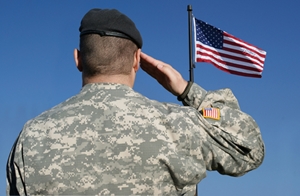Mental health issues such as post-traumatic stress disorder are among the greatest challenges facing returning troops, and there has been a concerted effort by the Pentagon and the White House to improve treatment. Yet despite the greater focus on addressing PTSD, there has been no increase in the number of troops who seek help. A recent confidential survey of troops in Afghanistan found that approximately half of servicemembers who reported mental health issues said they'd be perceived as weak if they sought treatment, according to USA Today.
Disappointing findings
The results come after officials had taken significant steps to reduce the stigma attached to seeking mental health treatment. The Department of Defense has been particularly active in urging troops to reach out for help while also improving their access to behavioral health specialists. This push has also lead to the creation of the National Intrepid Center of Excellence in Bethesda, Md., which specialized in treating traumatic brain injuries and PTSD. Still, experts say it will take time to change the culture.
"Despite efforts to reduce stigma … there still exists latent tendencies to view seeking behavioral health care as weakness," Army spokesman George Wright told the publication. "Leaders at all levels must continue to resist this culture by associating help-seeking behavior with strength-seeking behavior and by embracing the benefits of increased individual resilience."
Widespread issue
This isn't a problem that affects a small portion of the military community, either. Although there are no official statistics, experts estimate that approximately 20 percent of veterans of the Iraq and Afghanistan wars show symptoms of PTSD. And in 2012, the military suicide rate hit its highest mark ever, with more than 349 troops taking their own lives, according to NBC News.
PTSD can affect more than just the troops themselves, as their families can also feel the impact of the condition. According to ABC News, many spouses of servicemembers who have returned home with PTSD often struggle to convince their loved ones to seek help.
"It was probably the hardest thing he has ever had to do in his entire life, but it was the best thing he could have ever done; for him, for me and for his family," Amanda Cherry-Haus, a military spouse, told the news source.

